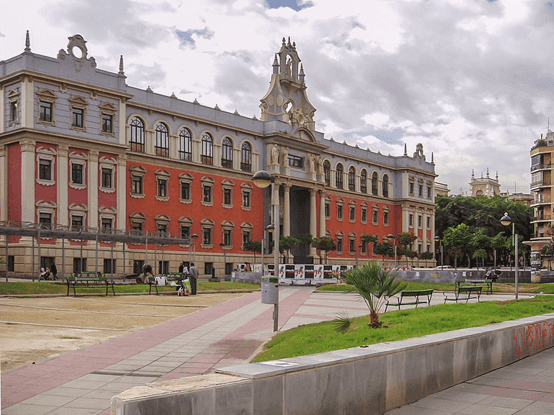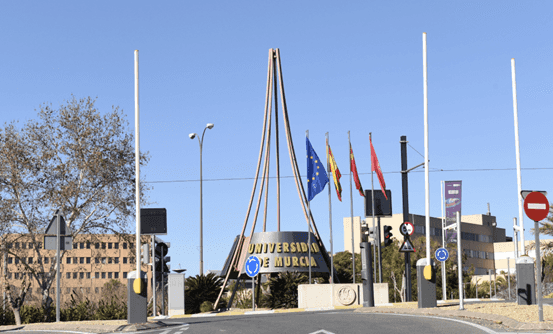Workshop Title:
New Challenges in Economics after The Ukraine-Russia War
Date:
December 4th, 2024 (GMT+1)
Organizer:
Research group on economics at University of Murcia
Keywords:
- economics
- policies
- development
- inequality
- poverty
Workshop Chair:
Personal Bio:
Úrsula Faura-Martínez is a prof. in the Department of Quantitative Methods for Economics and Business at the University of Murcia (Spain). She holds a degree in Mathematical Sciences from the University of Murcia (Spain). She obtained her PhD in Mathematics from University of Murcia in 1999. She belongs to the Stochastic Models for Economic Sciences Research Group whose main lines of research are Diffusion of Innovations, Economics of Education with modelling in Higher Education and Health Economics. Other lines of research are social exclusion, poverty, inequality, sustainable education, Mathematics for sustainability, Sustainable Development Goals and Educational Innovation.
Workshop Committee Members
Dr. Javier Cifuentes-Faura University of Murcia javier.cifuentes@um.es
Dr. Ursula Faura-Martínez University of Murcia faura@um.es
Dr. Matilde Lafuente-Lechuga University of Murcia mati@um.es
Workshop Description:
Background
This workshop aims to discover and discuss more about the latest economic developments in the world and the impact they are having on inequality and poverty. The recent war between Ukraine and Russia has been a major change in the global economic landscape. There has been high inflation and a considerate increase in prices, affecting citizens around the world. Inequality refers to the condition where people do not have equal access to equal use of resources, while poverty consists of the insufficiency of an attribute in relation to a threshold. Inequality, poverty and the risk of social exclusion have varied considerably over the last few years, and it is necessary to study the reasons for this.
Goal/Rationale:
The objective of this workshop is to broaden research topics, strengthen academic research and debate. The situation of inequality in recent years will be discussed. Following events such as Covid-19 or the war between Ukraine and Russia. Inequality had been decreasing for most countries during the last 15 years, however, this decrease was affected by the COVID-19 crisis. Various inequality indicators will be discussed to measure aggregate differences in income distribution. The Gini Index is the most common measure of inequality is the Gini Coefficient. This index is based on the Lorenz Curve, a cumulative frequency curve that compares the distribution of a specific variable (e.g., income) with a uniform distribution representing equality. Other indicators are the Atkinson Inequality Measures and the Decile Dispersion Ratio.
Scope and Information for participants
The objective of this workshop is to broaden research topics, strengthen academic research and debate. The situation of inequality in recent years will be discussed. Following events such as Covid-19 or the war between Ukraine and Russia. Inequality had been decreasing for most countries during the last 15 years, however, this decrease was affected by the COVID-19 crisis. Various inequality indicators will be discussed to measure aggregate differences in income distribution. The Gini Index is the most common measure of inequality is the Gini Coefficient. This index is based on the Lorenz Curve, a cumulative frequency curve that compares the distribution of a specific variable (e.g., income) with a uniform distribution representing equality. Other indicators are the Atkinson Inequality Measures and the Decile Dispersion Ratio.
Venue:
C. Campus Universitario, 11, 30100 Murcia, Spain

Visa
In order to ensure the information is correct and up to date, there may be changes which we are not aware of. And different countries have different rules for the visa application. It is always a good idea to check the latest regulations in your country. This page just gives some general information of the visa application.
Types of Visas for Spain
According to the length of your stay in Spain, there are two main Spanish visa types:
- Spain Schengen visas. The Spain Schengen Visa is a short-term visa for Spain that gives the right to its visa holder to enter Spain, and remain there for a maximum of 90 days within a 180-day period. If you travelling to Spain for purposes foreseen by the Schengen visa and you are a national of the 62 countries under the Schengen visa regime, you do not need to apply for a Spain Schengen visa. Note that if you have previously been rejected from entering the Schengen territory visa-free, despite being a national of one of these countries, you will need to obtain a Schengen visa in order to be eligible to enter to Spain.
-
Spain long-stay visas. For staying in Spain for a period of longer than three months.
Depending on the long-stay visa type you apply for, you may also be authorized to work in
Spain. Only the nationals of the following are exempt from applying for these visas:
- European Union member countries.
- Norway
- Iceland
- Liechtenstein
- Switzerland
How to Apply for a Spain Visa?
To apply for a Spain visa, follow the steps given below:
- Fill in the right visa application form.
- Collect the required documents.
- Make a visa appointment.
- Attend the visa interview and submit your biometrics.
- Pay the visa fee.
After you complete all these steps, you shall wait for the processing of your visa. You will receive an answer to your application, as soon as the processing is completed.
When is the Best Time to Apply for a Spanish Visa?
As Spain is a member country of the Schengen area, it applies the Schengen visa rules to travelers seeking to enter its territory. Thus, when applying for a Spain visa, make sure you submit your application within the given time frame:
- The earliest: Six months before the date of your planned departure to Spain.
- The latest: Two weeks before the intended date of travel to Spain:
- Recommended: at least three weeks prior to your trip, so you can avoid any possible delay by the embassy.
Where Can I Apply for a Spain Visa?
Spain has a very strict system of visa submission and processing. As a result, visa submission is regulated by Spain in every world country. Thus, depending on the country you live in, you may have to submit your visa application at the:
- Spanish consulate.
- A Visa application center like TLS Contact, VFS Global or BLS International, to which Spain has outsourced visa submission in your country of residence.
NOTICE:
Should your application be denied, the organizing committee cannot change the decision of visa officer, nor will ICFTBA engage in discussion or correspondence with the visa application center on behalf of the applicant. The registration fee CANNOT be refunded when the VISA application of individual being denied.
Attend in person:
If you want to attend the workshop on-site, please email the Conference Committee: info@icftba.org.











